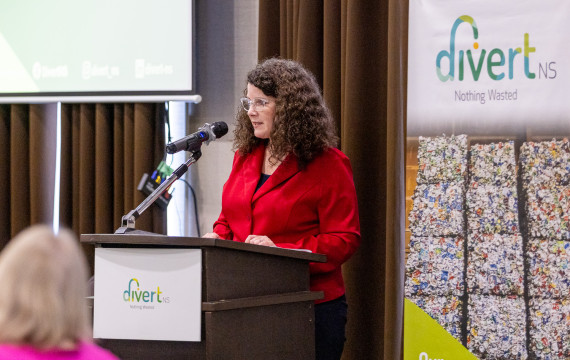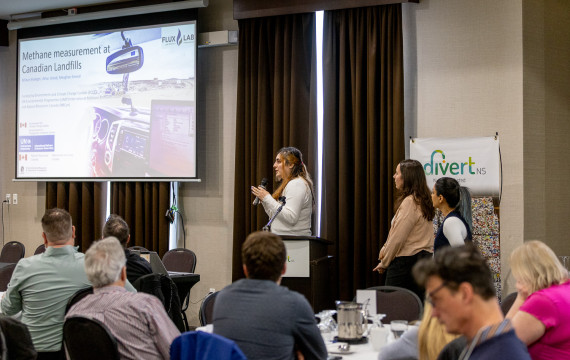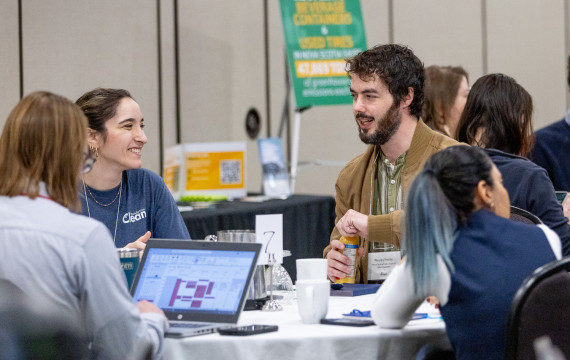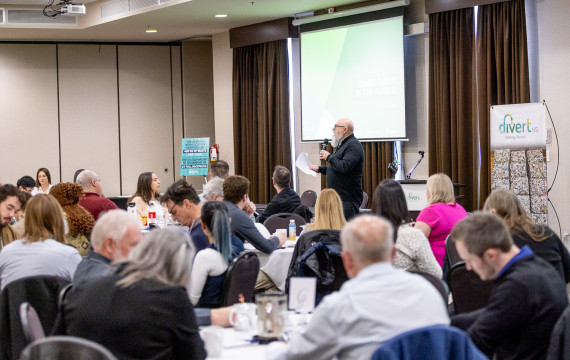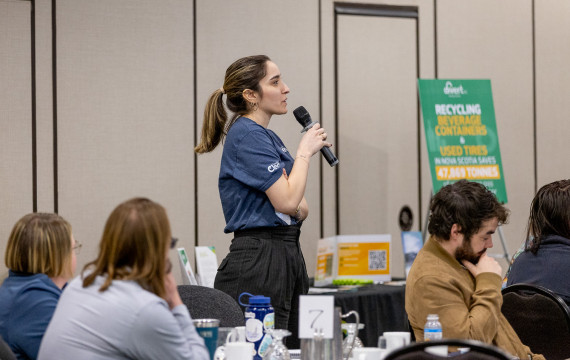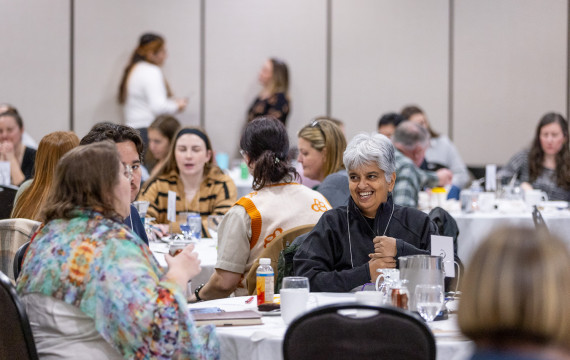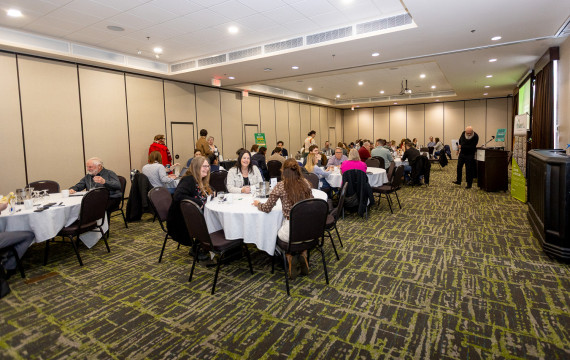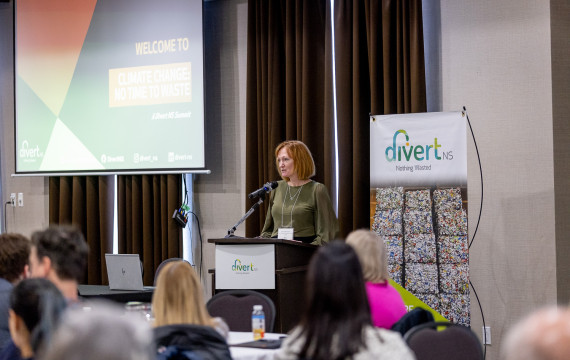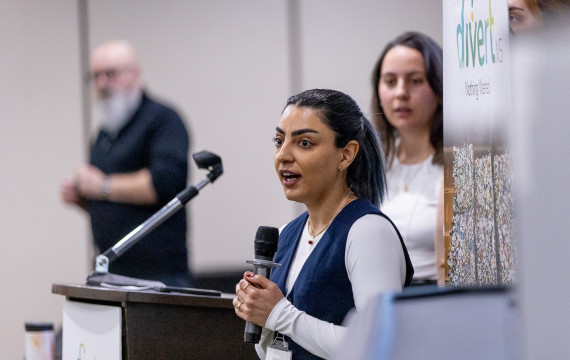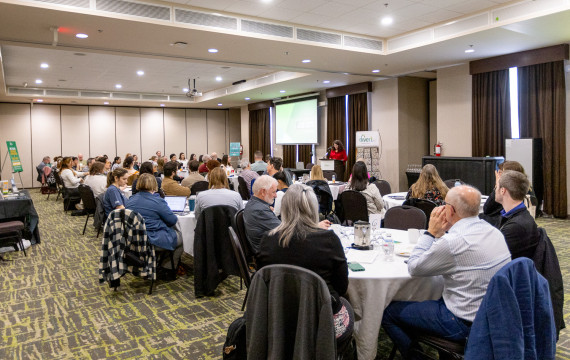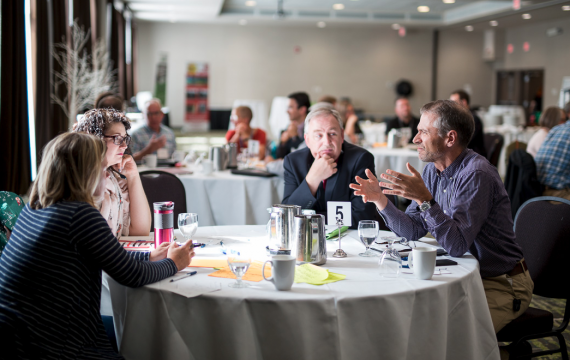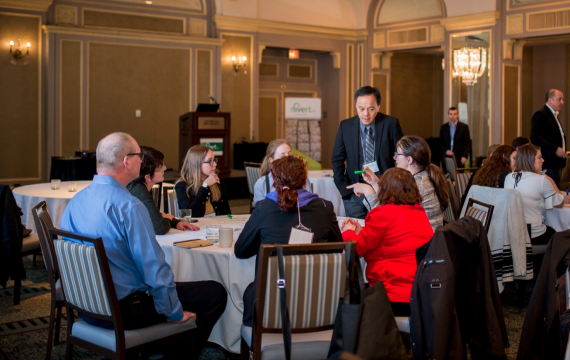2025 Climate Change: No Time to Waste Summit
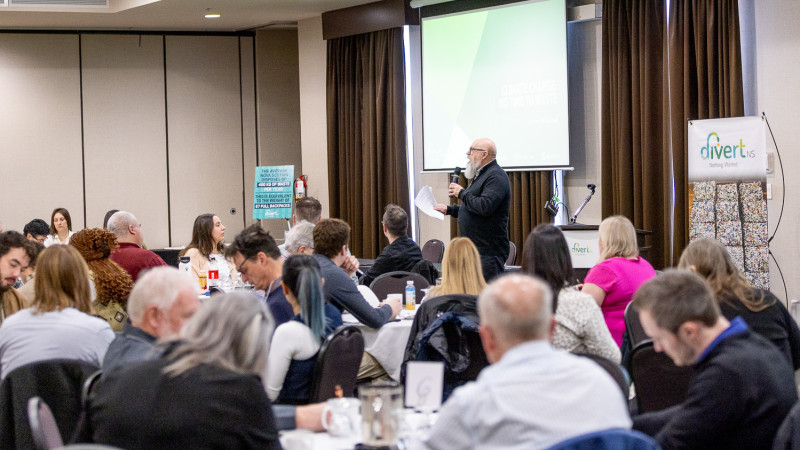
On March 20 - 21, Divert NS hosted a follow up event to our “Waste and the Climate: A Strategic Conversation” summit. The follow-up summit, titled “Climate Change: No Time to Waste,” built on topics explored in the first summit and provided practical tools to help bridge the gap between the waste and climate sectors.
The summit opened with remarks from Divert NS CEO, Stacy Breau, and Janet MacKinnon, Executive Director of the Department of Environment and Climate Change. Following opening remarks, the summit began with a presentation from FluxLab, a research organization based out of St. Francis Xavier University. Presenters Athar Omidi, Afshan Khaleghi, and Meaghan Amaral spoke about landfill emission measurement in Canada and opportunities to address knowledge and data gaps that will assist with emissions reductions within the waste sector.
After lunch, attendees heard from a panel of experts representing Halifax Regional Municipality (HRM), Cape Breton Regional Municipality (CBRM), and the Municipality of Colchester who spoke about the waste impact of natural disasters. Panelists Shannon Betts (HRM), Roschell Clarke (CBRM), and Phil Redden (Colchester) provided best practices for handling the increased volume of waste that results from natural disasters and discussed disaster debris management planning.
A popular theme that emerged from the first summit was the need to prioritize circular economy principles to reduce waste and greenhouse gas (GHG) emissions. Building on those discussions from the first summit, Divert NS invited Corey Pembleton from the Green Municipal Fund to present strategies and considerations for catalyzing a circular economy in your community. The presentation was based on a publication of the same name that can be found here. Also presenting was Dr. Sourabh Jain on behalf of the Ivey Business School whose presentation “Climate-Smart Circularity: Guiding Decision-Making Through Data-Informed Standard Protocols” explored circular pathways across three GHG contributing sectors, textiles, construction, and agrifood. The presentation was based on a publication of the same name that can be found here.
Attendees also had the chance to learn about climate funding opportunities for the waste sector. This portion of the day included presentations from Gab LeVert and Brandon Durkee of the Sustainable Communities Challenge Fund and Julia Sable of the Halifax Climate Investment, Innovation and Impact (HCi3) Fund.
Finally, day one wrapped up with a facilitated session led by Sean Kelly of Sean Kelly Consulting where groups discussed key themes highlighted throughout the day.
The second day of the summit kicked off with a session titled “Reducing Waste and Climate Impacts Through Innovation”. This session was led by Quinn Cavanagh, founder of RFINE Biomass Solutions, a cleantech company turning spent coffee grounds into sustainable food ingredients. Followed by Dr. Greg Wanger, founder of Oberland Agriscience Inc., a company optimizing the Black Soldier Fly to produce a premium, nutrient-rich, protein for inclusion in aquafeed, pet food, and livestock feed. After hearing from Dr. Wanger, attendees heard from Dennis Young, founder of Cyan Analytics, a company that integrates critical information across the supply chain to create a comprehensive record of each products journey, offering consumers full visibility into the products quality and sustainability. Finally, attendees heard from Megan McCarthy, Co-Founder and CEO of ROCarbon. The company is on a mission to help the world transition to a low carbon economy. Their latest innovation, a Carbon Credit Exchange Market (ROCx), is positioned to be the only exchange to offer environmental, social, and corporate governance (ESG) aligned offsets. In this session, each of these companies had the opportunity to showcase how they interact with one another, creating a local circular economy resulting in impressive waste and GHG emission reductions within Nova Scotia.
The day ended with a facilitated session where groups identified local and provincial priorities to advance waste reduction efforts within a climate lens. 70 key stakeholders attended the event, including provincial government staff, municipal representatives from both waste management and climate change respectively, academia, and environmental organizations.
The following presentations were delivered at the summit:
- Quantifying the Impacts of Waste on Climate Change
- Circular Economy as a Climate Strategy
- Funding Opportunities
- Reducing Waste and Climate Impacts Through Innovation
Photos of the summit are available here. (Note: Photos are copyright Divert NS 2025. Please feel free to download and share photos, but credit Divert NS.)

